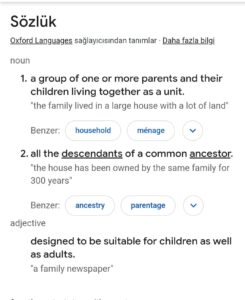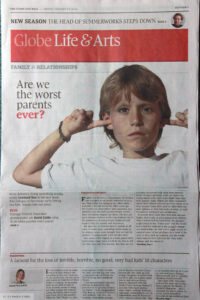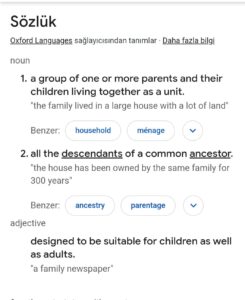Traumatized Parents Raised by Parents
What is family for a child?

Yes, but incomplete. The family is also a circle in which children grow up feeling protected and free. This circle is so strong that no child can adopt any adult other than their own parents as family.

How children with behavior disorders grow up?
In movies, psychologists ask the patient to lie down on a long couch and close their eyes, to relax and recall old memories. Let’s go back to infancy for a while.
Between the ages of 3 and 8 months, babies begin to recognize and explore their environment through emotional means. During this period, the emotional reactions of the mother are very important. Angry and aggressive reactions can sow the seeds of the first behavioral disorders in babies. Since babies cannot speak, they show their reactions by crying, flailing their arms, and kicking. At 18 months of age, most babies have tantrums. These tantrums usually last until the age of 3 and then subside. This is because they can now express their reactions by talking. So, talking often reduces negativity

.
Why do bad parents raise bad parents?
First of all, I must say that no one is born bad. Everyone is as good or as bad as their environment. And this environment starts in the family. If there is violence between parents in a family, this violence turns into trauma that is perceived by the child through visual and auditory means. This has the same effect as direct exposure to violence.
Children who experience such trauma are referred to as ‘silent’, ‘forgotten’, and ‘invisible’ victims. This leads to serious behavioral disorders in the adulthood of the same individual. Research shows that individuals who were indirectly exposed to violence in childhood tend to show more anger and aggression towards their own children.
Roles
The most common psychological disorder of women who have experienced physical violence in the family is depression. The main cause of this depression is not only physical contact but also the desire to separate, yet being unable to do so. So, for the child, it is the instinct to maintain the relationship.
In such an environment, the child instinctively tends to bond more with the mother due to hunger for love. If the child wants to make their own way and move forward on their own path, they feel guilty about it. In a way, the instinct to mother their own mother develops. The result is distorted and unhealthy relationships where roles are reversed.
Furthermore, every child sees their father as a hero by nature (as a masculine figure). However, a father who is violent towards his mother becomes feared and unreliable in the eyes of the child. In this situation, the child tries to oscillate between the image of a caring and trusting father on the one hand, and the person who harms his mother on the other.
Note: If children see aggressive behavior being used as a way to fix things in their families, they believe that this is the most effective way. They make anger and aggression part of their lives and accept this attitude as the only way to solve problems.

